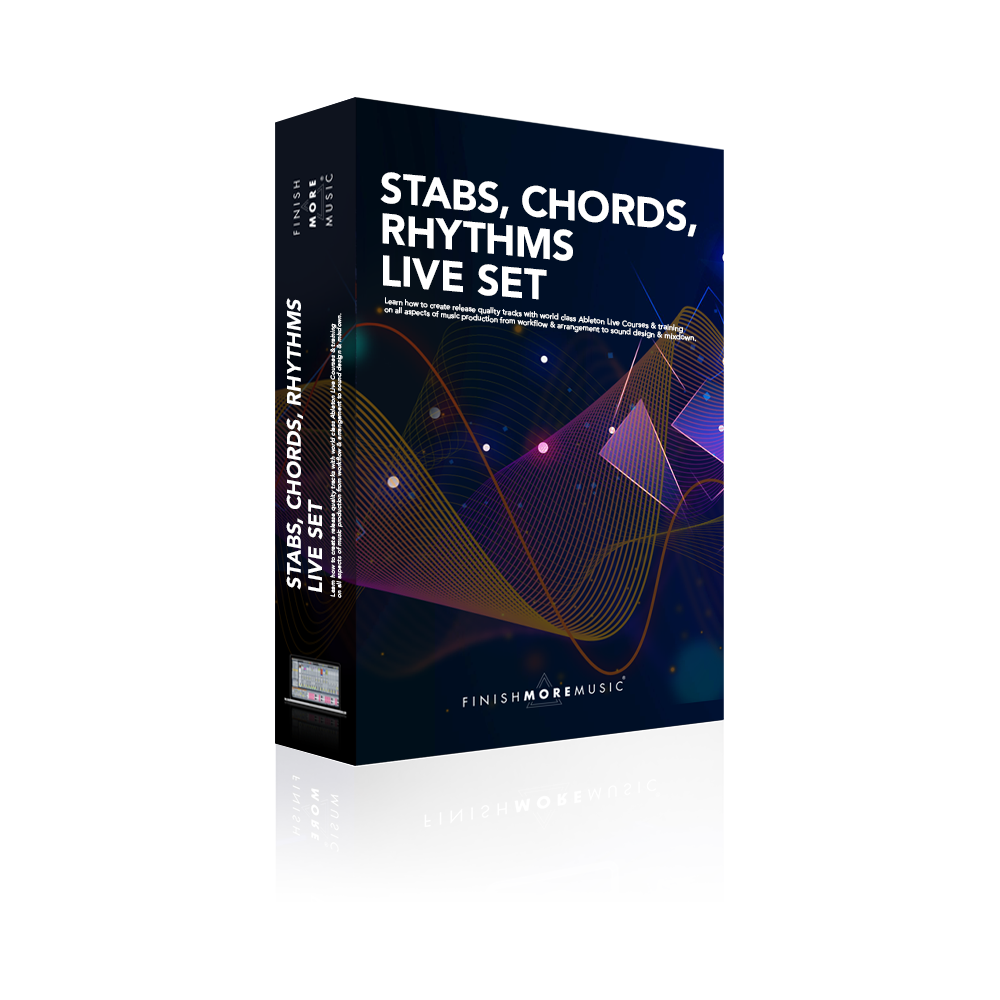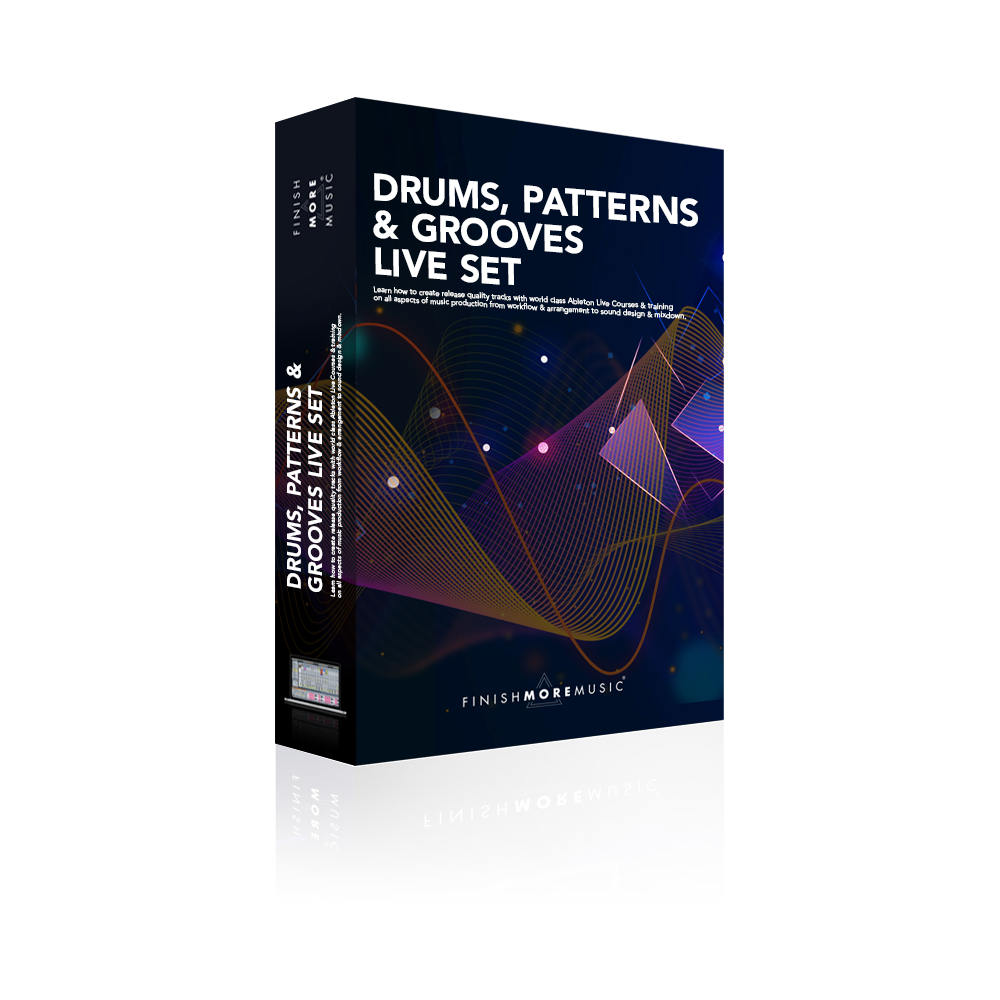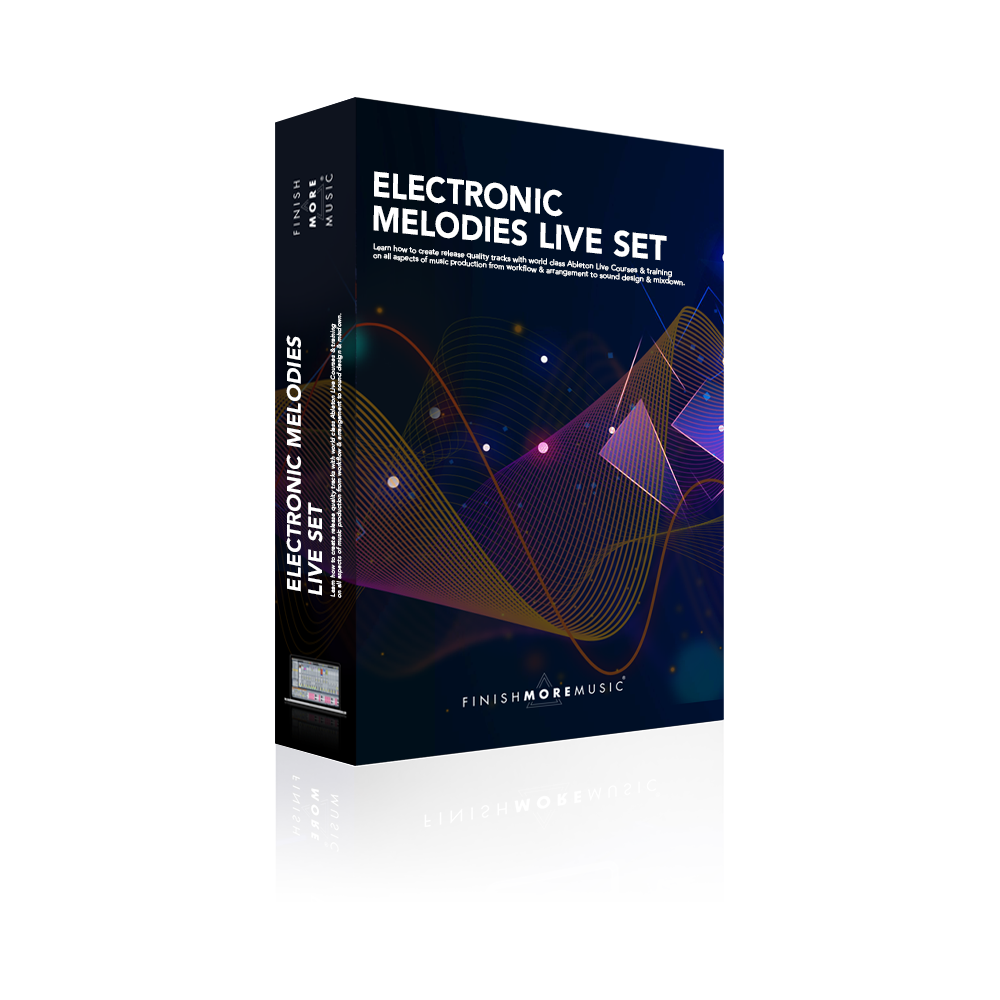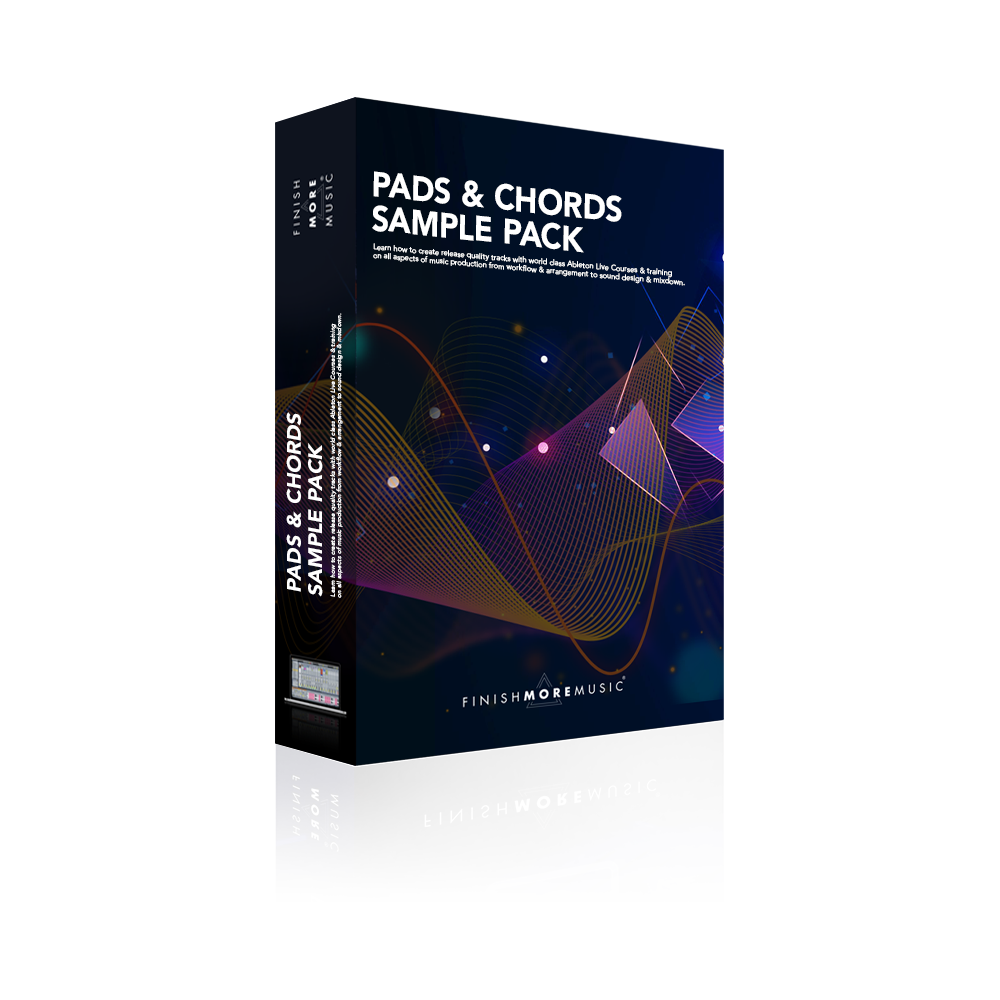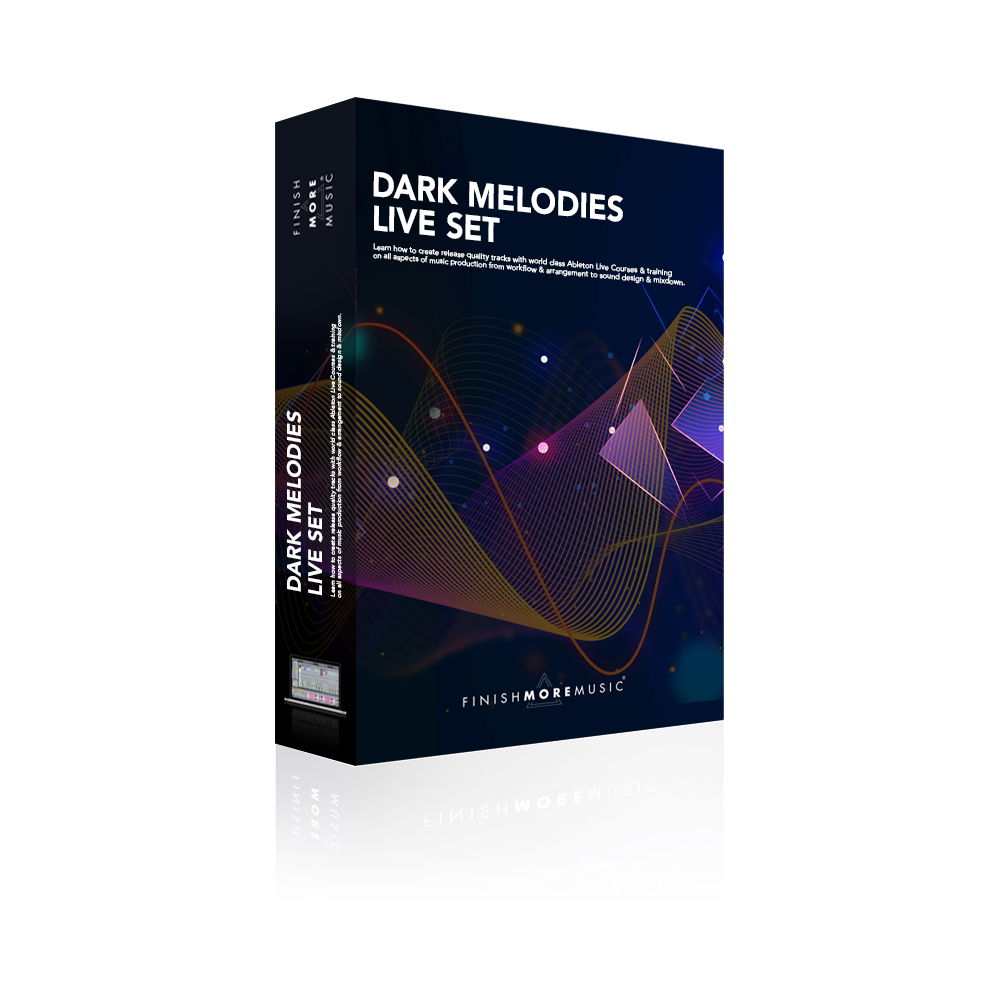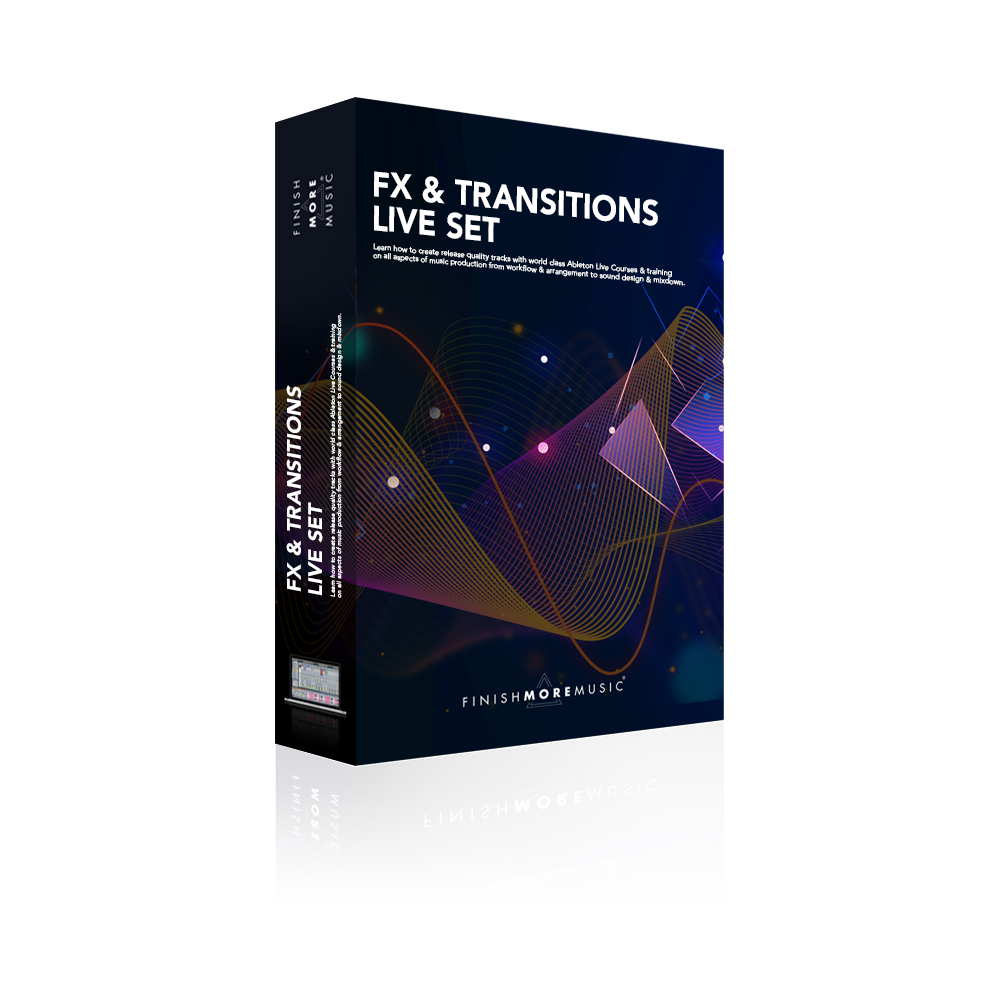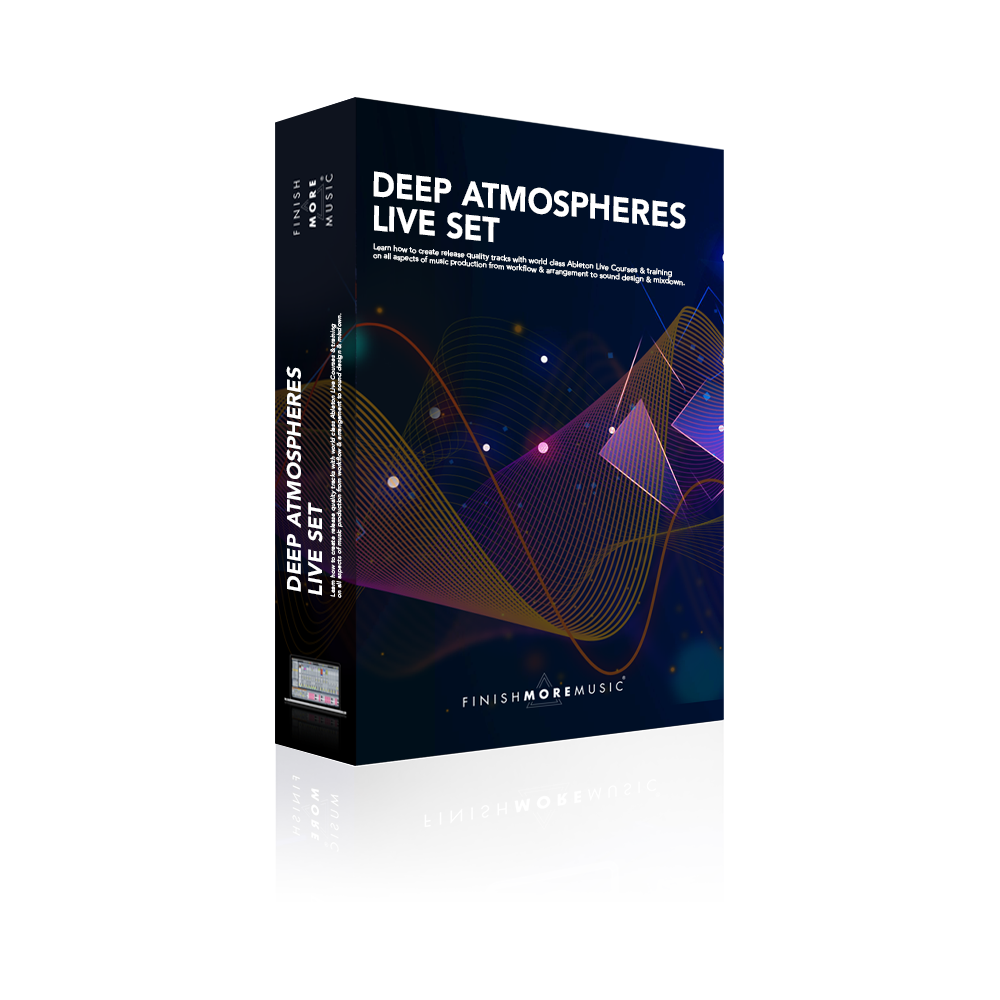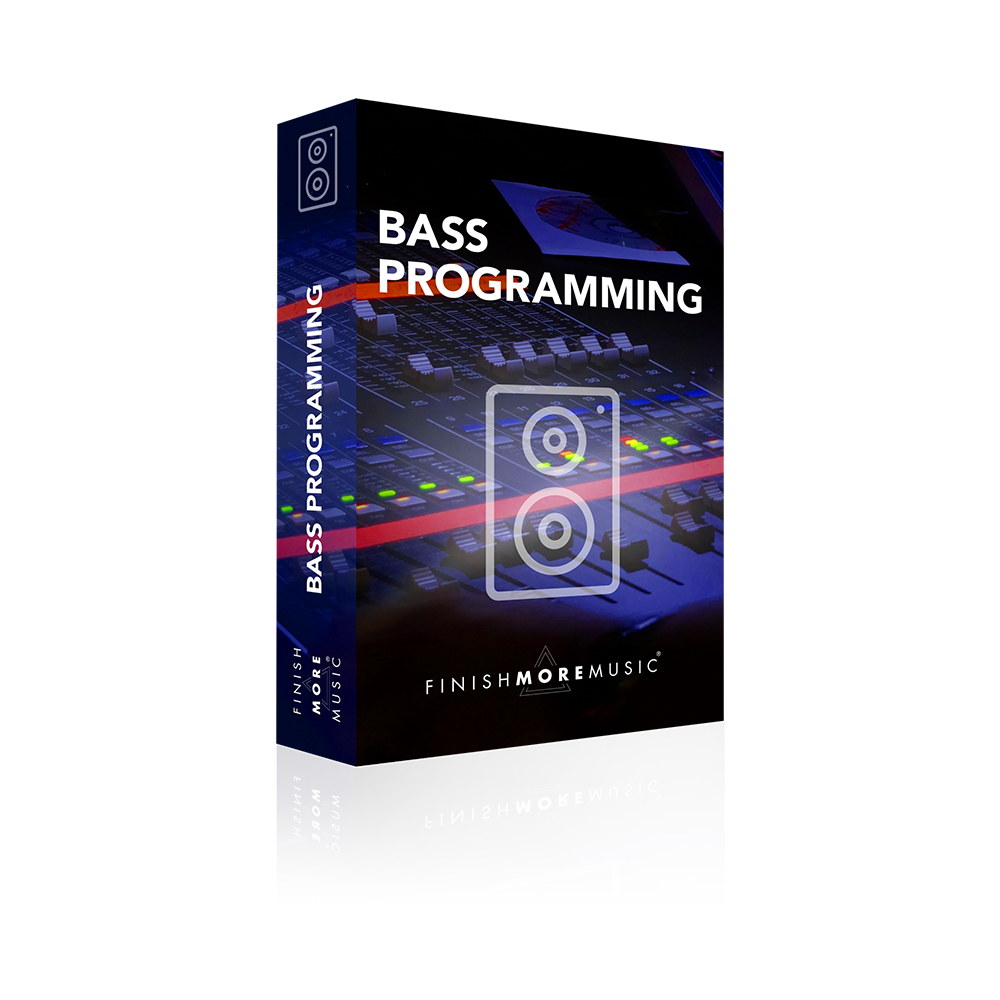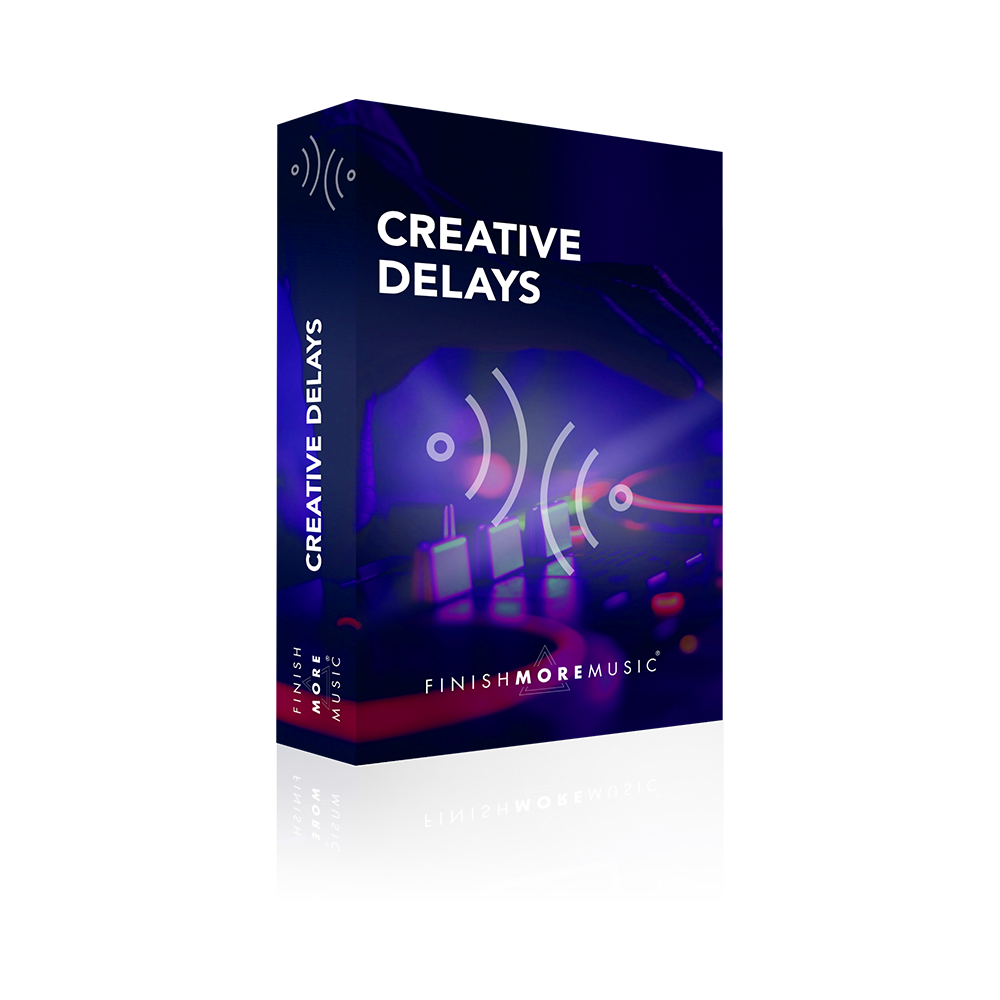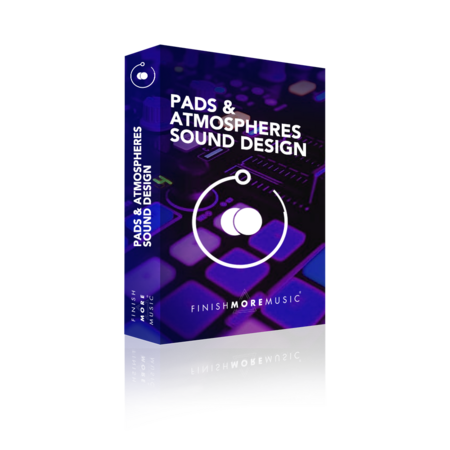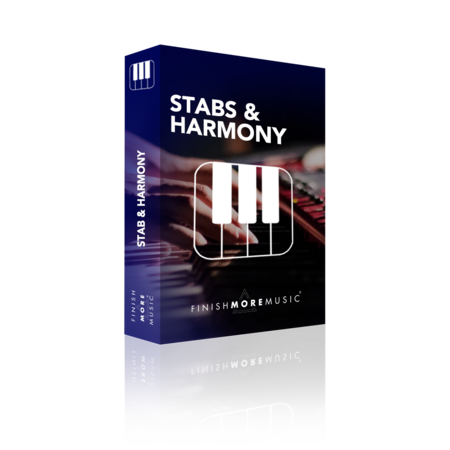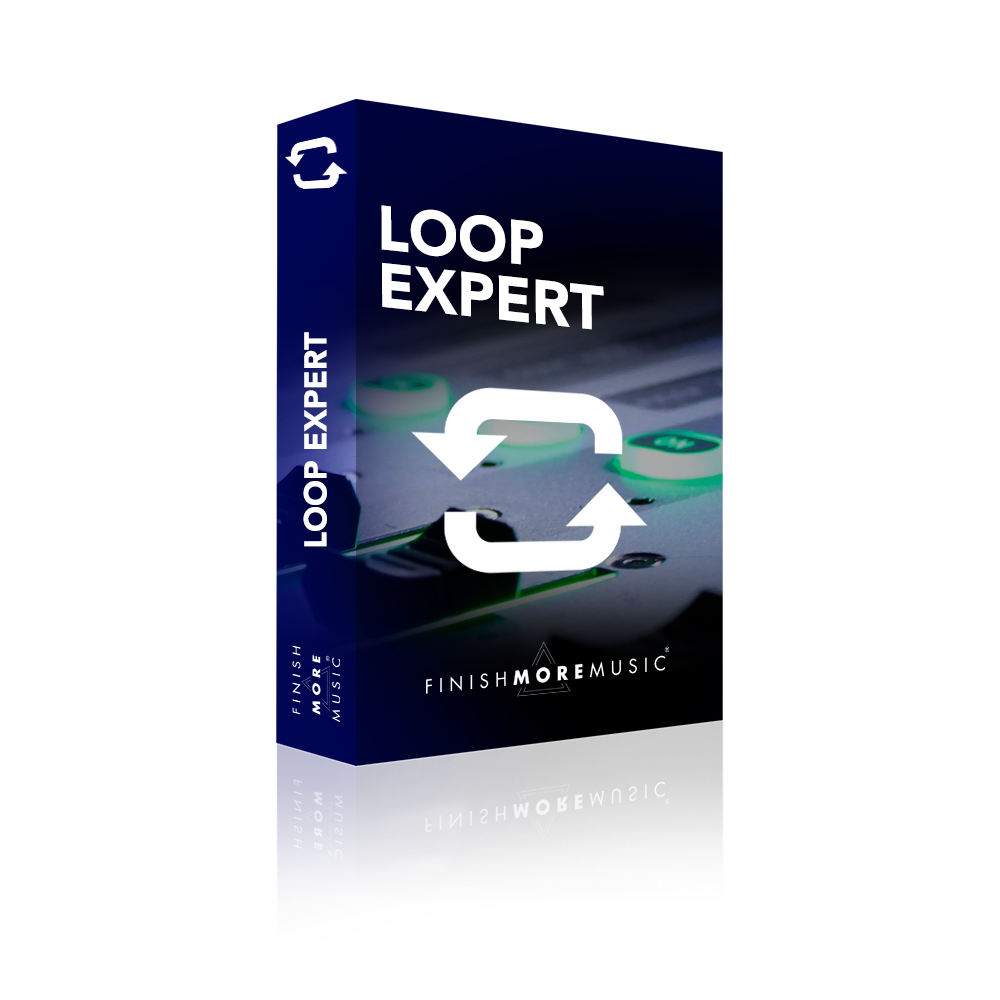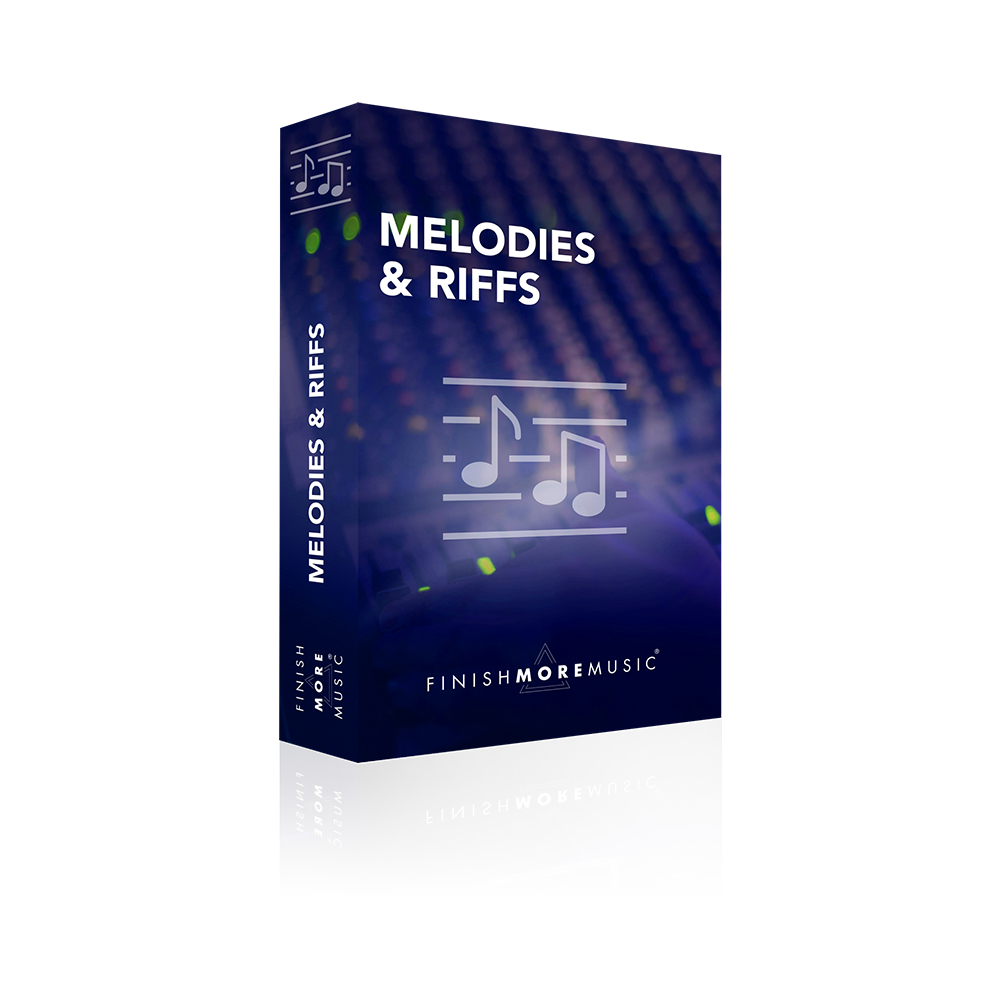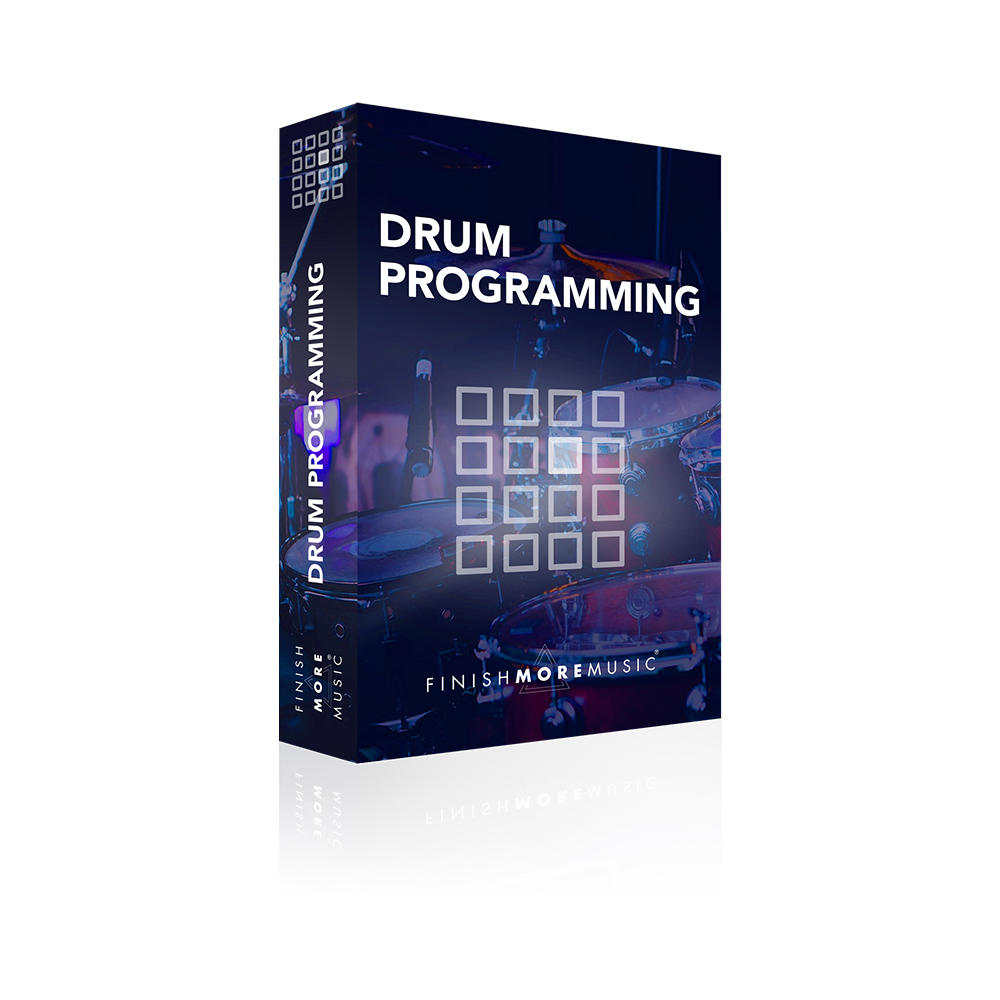This is an automated transcription which may have some occasional errors in spelling and grammar.
Hi, I’m Keith Mills, and this is episode number 77 of the Finish More Music podcast. And today we’re going to be talking about stealing. Artists throughout history have been inspired and influenced by one another, but when does this cross the line? When does stealing like an artist become stealing like a thief? So in this episode I’m going to share some of my personal experiences on this topic with you, and it’s going to include something that happened very recently that went the entire way through to legal proceedings. So we’ve got a lot to get through. Let’s get started.
This is the Finish More Music podcast, a show for underground dance music producers who want to finish more and better music, and to share it with the world. My name’s Keith Mills, and every week we’ll dive into the mindset and creative strategies that will help you to move further and faster along your music production journey.
A pretty dark topic, and I’m particularly interested in getting to the bottom of the difference between stealing like an artist and just flat out stealing, just ripping people off. So, steal like an artist, this term came from the book by the same name from Austin Kleon. Absolutely amazing book. If you haven’t read it, some really interesting concepts in there for creatives. And I totally resonate with what he talks about, and we’re going to get into that in a little bit more detail as we go along.
But the reason why I’m doing this podcast now is actually not because of this book. It’s something I read ages ago and regularly returned to, because it’s got some great lessons in it. But it’s actually, unfortunately, because we have experienced recently, and we do quite a lot, but recently on a large scale, somebody completely ripping off Finish More Music. And I’m delighted to say that we went the full hog with the legal proceedings and we got the result we wanted, which was absolutely fantastic. But nevertheless, it’s a lot of time, energy, and effort having to go around, and when you spot people who are taking your stuff, deal with them. It’s pretty unpleasant, and nobody wants or needs, or I would concur really should have to go through this.
So it’s kind of a natural byproduct of your success in this day and age, and probably going back pre-internet era, I’m sure, but now it becomes more and more obvious, with the internet. And so in our situation, we teach people and we get them to release and we help them to reach their version of success, and as a result, we’re very visible now. And so when we’ve got people in our community who are posting all over their socials their delight and joy at the different milestones and benchmarks they’ve hit, and we’ve got incredible producers, people who have been absolute the top, number one position in the Beatport track charts, which is with all the top producers, everyone you’ve ever heard of. They’re there at the pinnacle of that pile of individuals. And we have people releasing on all the big labels, Suara, Microphone, Affin, Viva, Analytic Trail, Defected, Toolroom, so many of the big labels that you’ve heard of. So it brings a lot of visibility.
And so then other people see what we’re doing. And naturally they’re like, what are they up to? We’ll have a bit of that. And it’s at that point that some people decide that having a bit of that means not that I’ll get inspired, or I’ll take some ideas, or I’ll learn and create something new myself, I’ll innovate, but actually is literally I’ll have some of that and I’ll take it. And so we find this all over the internet. There are people who, for example, steal parts of the system that I designed and they go out into the world and pretend that’s their own. And that’s really obvious, because it’s unique. I made it. You can’t get this anywhere else. So when we see that happening, we’re straight away on that. And again, it’s time, energy, and effort that we don’t want to put in. But it’s really obvious when people are taking our content, because it’s unique.
But also, it’ll be websites. We’ve had people pretty much lift our entire website and then change some of the words to make it look like their own. Designs, all of these different things, taking things that I say and saying it again and pretending it’s theirs. So that goes on a lot. This particular individual, though, was going the whole hog and actually completely stealing the brand name, as well. And we received so many messages about it, and they range from people saying, “This guy’s an X, Y, Z,” in some pretty strong kind of language, to, “He’s stealing from you. He’s ripping you off.” And perhaps the ones that irk me the most were when people would say, “Hey, are you affiliated with this person? Because I’ve taken their course,” and it was awful, was one of the words. Disorganized was another one. And if you’re affiliated with them, then I’m not going to come to you kind of thing. I’m not going to come and get help from you.
And that’s a real kicker, because everything we do is about helping people and lifting them up. And let’s be honest, if you’re creatively stuck and you’ve got a massive passion for music, and it drives you and you’ve got these goals and ambitions, and you’ve got something to say, and you want the accomplishment, you want the validation, you want to get out, you want to see your music played, you want to see it in the clubs, maybe your favorite DJ playing it. And you want the feelings that you get when you’re on the dance floor. You want to share those with people. You always want to share your music, your passion. Music makes people buzz.
And when somebody is coming along and confusing the marketplace deliberately by copying your stuff and our name, in this instance, that is stealing the opportunity from someone who we could potentially help. Because if they think we’re one in the same, and they’ve had an awful experience with this individual, then they’re just going to go past possibly the chance, the moment, the thing that would change everything for them. So that stung, when we were getting messages like that, as well. And I think there’s a real irony in this. And this is not just this story that I’m telling you now, but we’re going to of course carry this into the world of music and the wider learning point. There’s a real irony in this, that somebody would go out into the world and say, “I’ll teach you to create stuff,” and they are not creating. What they’re doing is faking it. They are copying, point blank just copying. That’s all they’re doing. I just want to be clear, when I say point blank there, it’s got nothing to do with Point Blank Music School, in case anyone thinks there’s a weird reference in there. Absolutely not in the slightest.
So it was someone who’s stealing our exact name for their course. And I do get why people would do this, because as you all know, creating stuff can be challenging. You’re bringing something original into the world. That’s what creativity is. And sometimes it can be uncomfortable, and it can shine a bit of a mirror up to us. And it’s quicker, it’s quicker to steal it than the longer game of making things yourself. But the reality is that when you just copy and steal point blank somebody’s stuff, then you’re starving yourself of all of that amazing accomplishment and validation of bringing something new into the world. And it feels magical. It’s incredible. Sometimes when it’s a grind, to come out with that euphoric feeling of solving it, of designing it, of inventing it, is amazing.
But more than that, when people go around stealing from other people, and perhaps a good example here is to talk about some of the things I’ve seen in the music scene. But when you do that, you are starving other people of your innovation and your creativity. So I’ll give you a classic example of this, my good friend, Chris Page, who I used to make tracks with, we used to release together. Chris had a piece of music that he uploaded, I think it was at Christmas time, onto his SoundCloud page as a gift for everybody. So everyone who followed him, it was like, “Hey, I’ve just created this new piece of music, and rather than release it, it’s yours for free. Just hit the download button and take it. Hope you enjoy it.” A couple of months later, we discovered that somebody had downloaded it and released it under their own name. Can you imagine? So with a record label, as well. So the record label had the hump when they found out what had happened, because they’d already promoted it and put their time, energy, and effort into it. But someone was going around just downloading other people’s music from Beatport and releasing it as their own tracks.
And the point with this is that if everyone was to do stuff like this, how boring would the scene be? I mean, you are starving people of your creativity. And we see this a lot, as well, in kind of vanilla dance music, and that often comes about because, I’m sure you can resonate with this, somebody will come out and they’ll write a track, and it’s not that it’s groundbreaking or it’s outside of the genre. It could be techno or house or trance or whatever it might be, but they’ve used some different sounds. And maybe they’ve brought like a new flavor to proceedings, that you’re like, wow, that sounds fresh. And then what happens in the preceding months? A bunch of music comes out with the exact same sounds, and that fresh and unique and cool idea is now just vanilla, because everyone’s done it, rather than people saying, “Hey, you know what? That sounds really cool. That’s sparked some creative ideas in me. I’ll go and see what I come up with. I don’t want to sound too similar. I’ll be influenced by, but I don’t want to sound too similar to that.”
And the same deal with this guy who ripped us off. Had he have done the hard yards himself, not only would he have grown as a person, because you grow so much creativity, it’s so powerful for self discovery and your journey as a human being, it’s magical. It really is in that respect. As well as growing himself, he may well have brought something interesting and unique and some new ideas for everybody to learn about, rather than stealing. Now, I don’t know about the course itself, but my gut feel is if you’re going out nicking people’s brand name, and you’re going out nicking their copy, and similar designs and colors on the website and all of that stuff, you’re probably going out, grabbing and stealing bits of courses, as well, and either gluing them together or just nicking somebody else’s stuff entirely.
And here’s the deal with that. That would be the reason. And that’s why I’m drawing this conclusion that people would say, “Well, this thing is awful,” because you don’t understand all the underlying reasons why. Only the person who made it or created it understands it well enough to teach it in that level of detail, unless they’ve coached you on it, unless they’ve taught their own coaches, for example. So if you start grabbing bits from here, here, and here, you don’t really know. You think you know, you’ve got the surface level understanding, but it’s not enough for that course to really, truly be effective in the real world.
So getting back onto the music side of things, we talked about this idea in a previous podcast of how to make original sounding music. And you remember the general concept was is if we force it, it’s not original. And I gave you the equation, which was being prolific plus authenticity, being true to yourself, that is what creates your own sound. And authenticity is vital for being creative, being true to yourself, and what’s true to you, and not copying stuff from other people. And so that’s really the distinction for me, and I think this is what Austin Kleon in his book leans towards, as well, is when he says steal like an artist, it’s really be influenced by.
And absolutely do be influenced by. Bring all of the things that light you up from multiple different genres together. It’s a melting pot of who you are, and what you’re interested in, and what sparks you. But also, learn from other people’s music. There’s nothing wrong with recreating things to learn from it, or from taking concepts and ideas and using them as a framework or boundaries within which to innovate yourself, within which to bring your own sense of play and fun and exploration, and reinvent stuff. That’s amazing. So we see there’s absolutely loads on YouTube. There’s a lot of things I’ve come up with that people have come along and taken the idea and reinvented it in something cool.
And of course I do the same. It would be wrong of me to say every single thing that I talk about I’ve just magically come up with. I’m studious. I read loads of books, I’ve taken loads of courses. And I pick the bits that align with what I believe to be true, and experiment with them and play with them like a scientist. And when things work, modify them, refine it. The Finish More Music system has been through so many iterations. It started out life as a workshop that people would come to my studio, four or five people for a weekend, and I would teach this and it was hugely effective straight off the bat. But by teaching it, I got a deeper understanding. I saw what was working, what wasn’t. Modify, change.
Then it came as an online course in our membership. This is the creative process that gets people loads and loads of results. But then that came again. I did a whole new version of that. So the members will know, updated the entire thing to 2.0. I’ve got more ideas. I’m constantly changing and adding things, and that’s sort of the pathway and the fun of creating stuff yourself. But of course, when you’ve got that, you take influences and ideas from other people, but innovating and reinventing, that’s awesome. That’s magical, and people say things like, “Oh, I better not use a loop from a pack.” No, rubbish. That’s totally fine. For a start, it’s been made available for you. But it’s one little piece. It’s one ingredient. And to say you can’t use things like that would be like saying, oh, whoever the individual was who invented the, I don’t know, the beef bourguignon, for example, having someone knock on the door and say, “Now, hang on a minute. I’ve cooked beef before. You’re a thief,” that would be insane.
So taking ideas and putting them in a melting pot, great word, right? Pun not intended, but that works really well here. Putting them into the pot and mixing up these new ingredients and coming up with something new is the name of the game. Everybody’s done pretty much everything there is to do. It’s about bringing our own unique and individual take to things. And that’s why we have things like remixes. Someone can take someone else’s track and doing it like an official remix, for example. So it’s contractually nailed down, and it can sound very different or you can hear the core theme running through the track. There’s lots of things that can be done with it, but it’s something very unique. It’s rare you hear a remix and go, “God, I can barely tell the difference between those.” And that’s where it’s just plain copying that’s coming into play.
And I’ll give you another example of this. Actually, it’s just come to mind. I know of a top, or a well known is a better way of putting this, DJ and producer. And I’m talking very, very well known. Three of my friends who are all producers and who write great music have had to contact this individual for stealing their tracks. And what he does is he takes their tune, sometimes as it is, sometimes chops it up into another arrangement, and then just puts a couple of sounds on the top of it and releases it as his better music. So what he’s doing, he’s looking for people who aren’t like the super, super big names. It sort of goes down to a few tiers below that, people who are on their way up, and goes, that’s a great tune, I’ll have that, and puts that out into the world.
And I guess there’s the question here about people’s moral compass. Because some people are happy to copy, and let’s be really clear. Copying is not being creative. Copying is faking it, if you’re pretending that you are a creative and you’ve just taken somebody else’s stuff and barely done anything with it, or just completely ripped it off. And that really is starving an individual of so much benefit. As I said, it starves the wider world of your creativity and what you have to offer. And if you go in there, everyone is creative. Everyone can have amazing ideas. Every single person who comes through Finish More Music, they learn the creative process and they come up with cool stuff. They write interesting music. It might seem difficult if you’re struggling to write music now, but when you’ve got a creative process to follow, you absolutely will come out with cool individual music, some stuff that will maybe even surprise you, which is great.
And it’s a buzz. It’s absolutely incredible to feel like that. And as I mentioned before, it’s a path to self discovery. It’s a path to fulfillment. It’s a personal journey. There’s so much value from it.
So in summary, what I would say here is, although it may be tempting to copy other people’s stuff, and I don’t think you would, you listen to this show, and I don’t think you’re the kind of person who would, but the bottom line of this is it can be tempting just to lift out other people’s stuff. But it really does whoever’s doing the stealing, and the wider world, a disservice, because it’s very different. And if your moral compass is that, you know, like these individuals that we’ve been talking about, is that they can suck this up, then so be it. But they still are missing the wider picture. And the stone cold reality of this is, you take so much. Creativity is incredible. And I wrote down this quote from a guy, and I’m probably going to murder his second name, so I apologize. Dieter Uchtdorf, I believe it’s pronounced. Just so there’s no confusion here, U-C-H-T-D-O-R-F, who said, “The desire to create is one of the deepest yearnings of the human soul.” What a beautiful quote. It’s worth saying again, right? The desire to create is one of the deepest yearnings of the human soul.
And to not follow that, to shirk that, to avoid that, to give into the fear, to give into the resistance, is to miss out massively on all of the huge benefits that come with being a creative. So there we go. That’s the story and the vibe of this one. Another shout out to Steal Like an Artist by Austin Kleon, because it’s a great book, if you haven’t read that. It’s really the difference between flat out copying and faking it, and using other people’s music, in this case, to learn as an influence, as inspiration, as something to reinvent and to innovate. All of those things will light you up. Flat out copying will starve you and the world of some real magic that comes from pursuing this art form.
So hope you enjoyed the show. I’d love to hear your thoughts on this. Do you have any experiences of people taking your stuff or have you seen it? How do you feel about this topic overall? How does it make you feel? Please do hit me up on Instagram. I think this is a really deep subject. I’d love to hear from you. I am Keith Mills on Instagram. Ping me a DM. I know I sound like a broken record saying this, but I’m still getting people saying, “I didn’t think you’d come back to me.” I absolutely reply and read every single message. I’d love to hear from you. So show notes, finishmoremusic.com, 077, and a quick reminder for you. It’s coming in the outro, as well.
But 8th of October is our brand new three part video series. We’re going to be filming that bad boy very soon, as well. It’s coming up next week. I’m going to be filming. I still haven’t finished the script. I keep wanting to change things and tweak things and invent new stuff. And I’m like, Oh God, this would be more helpful for people if we go down this road. So I think I’ll probably take it right up to the wire. There’s always that last minute tweak that I try and put in there. Put your name down if you haven’t already, so you grab your spot on that. It’s finishemoremusic.com/waitlist.
So hope you enjoyed the show. Do stay safe. Happy music making. Until next time. Book the 8th of October in your diary now. I’ve been cooking up something really special for you, a brand new, completely free Finish More Music workshop, with one goal in mind, to get you finishing more and better music, even if you suffer from overwhelm, perfectionism, procrastination, sitting in front of your DAW completely at a loss for where to start. This is a three-part online video series with limited spaces. So jump over to finishmoremusic.com/waitlist right now, and secure your spot. The last workshop was a huge success. We had producers who’d struggled to finish any of their tracks for years literally hammering out tunes in just a few short days.
So if you have that voice in your head that keeps telling you you’re not cut out for writing music or you’re too slow, or you’ll never make it as a music producer, this series will change everything for you. Let me show you how a few simple tweaks to the way you think and approach your music will completely transform your productivity in the studio. You’ll achieve a lot more than you can imagine in a very short space of time. Grab your spot now at finishmoremusic.com/waitlist, and I’ll see you in the next episode.
